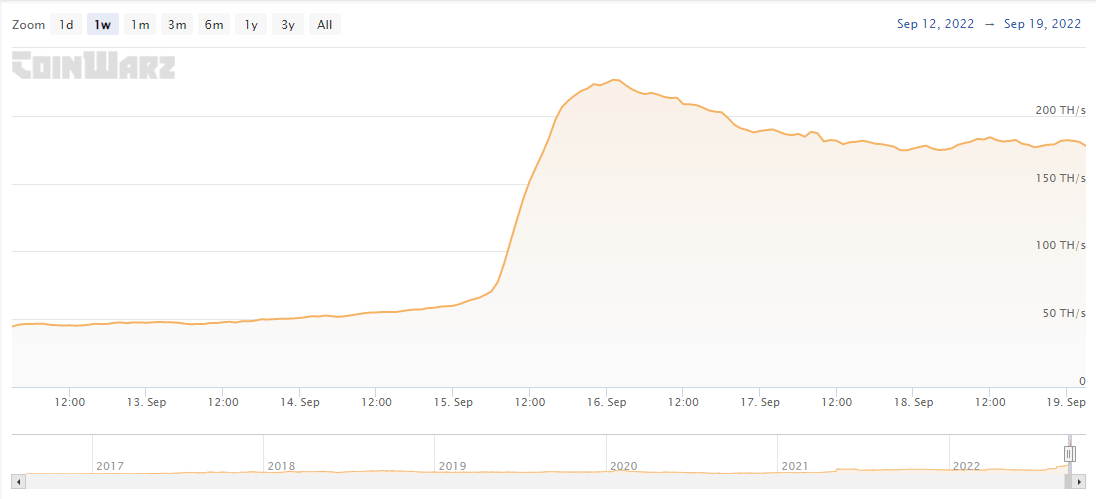EVGA to Stop Making Graphics Cards After Ethereum Merge

EVGA, one of the largest manufacturers of graphics card add-in boards, announced late Friday that it is quitting the board business due to the bleak financial outlook in the sector post-Ethereum Merge and “mistreatment” from its partner Nvidia.
«EVGA will not carry the next generation graphics cards,» a company spokesperson said on its forums. «EVGA will continue to support the existing current generation products. EVGA will continue to provide the current generation products. EVGA is committed to our customers and will continue to offer sales and support on the current lineup.»
While Nvidia and AMD design the GPU that sits on the board, the actual card itself that slots into a computer is built by by third-parties such as EVGA, Asus, MSI, and Gigabyte. This is done to separate this low-margin business from the high-margin business of designing the actual chips.
Speaking with YouTube channel GamersNexus, EVGA CEO Andrew Han said that while graphics cards are 80% of the company’s business, the firm makes 300% more of a margin on power supplies. Han said EVGA “wouldn’t even entertain the idea of working with Intel or AMD» because of the inherent problems with the business model.
Han also told GamersNexus that Nvidia regularly mistreated the company — despite it holding 40% of the North American market share of Nvidia cards — by keeping it in the dark on prices until the last minute. Nvidia would also regularly undercut its partners like EVGA by selling its own first-party branded cards
Data from Jon Peddie Research shows that while Nvidia’s margins have been increasing year-over-year, largely because of the need for GPUs in data centers around the world, the margins for graphics card add-in-board partners like EVGA have slipped from 25% in 2000 to around 5% in 2022.

Although a doubling of hash rate in such a short period of time would be an impressive metric elsewhere, it’s merely a fraction of the nearly 1000 TH/s Ethereum had the hours before the merge.
For companies like EVGA, Asus, and Gigabyte, this will be a tough period as they work through a market that’s oversupplied.
Gamers who haven’t been able to get a graphics card at market price in years, will be happy.






 Bitcoin
Bitcoin  Ethereum
Ethereum  Tether
Tether  USDC
USDC  TRON
TRON  Dogecoin
Dogecoin  Cardano
Cardano  Bitcoin Cash
Bitcoin Cash  LEO Token
LEO Token  Chainlink
Chainlink  Stellar
Stellar  Litecoin
Litecoin  Hedera
Hedera  Monero
Monero  Dai
Dai  OKB
OKB  Cronos
Cronos  Ethereum Classic
Ethereum Classic  Gate
Gate  Cosmos Hub
Cosmos Hub  VeChain
VeChain  Algorand
Algorand  KuCoin
KuCoin  Stacks
Stacks  Tether Gold
Tether Gold  Zcash
Zcash  Theta Network
Theta Network  IOTA
IOTA  Tezos
Tezos  TrueUSD
TrueUSD  NEO
NEO  Polygon
Polygon  Decred
Decred  Dash
Dash  Ravencoin
Ravencoin  Zilliqa
Zilliqa  Qtum
Qtum  Synthetix Network
Synthetix Network  0x Protocol
0x Protocol  Basic Attention
Basic Attention  Siacoin
Siacoin  Holo
Holo  DigiByte
DigiByte  Status
Status  Nano
Nano  Enjin Coin
Enjin Coin  Ontology
Ontology  Waves
Waves  Hive
Hive  Lisk
Lisk  Pax Dollar
Pax Dollar  Steem
Steem  BUSD
BUSD  Numeraire
Numeraire  NEM
NEM  Huobi
Huobi  OMG Network
OMG Network  Bitcoin Gold
Bitcoin Gold  Ren
Ren  Augur
Augur  HUSD
HUSD  Bitcoin Diamond
Bitcoin Diamond